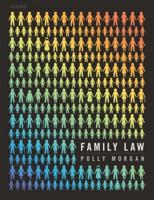Publisher's Synopsis
Despite wide recognition that access to justice is one of the most basic rights of democratic citizenship, unfulfilled legal needs are at a tipping point in many parts of the Canadian justice system and around the world. High legal fees, complex and expensive administration, lack of funding, political inattention, insufficient research and education, and a relatively uninformed public feed into the problem. The Justice Crisis assesses what is and isn't working in efforts to improve access to civil and family justice. Meaningful access is often a question of providing pathways to resolving everyday legal issues. The availability of justice services that aren't only tied to the courts and lawyers - such as public education on the law, alternative dispute settlement, and paralegal support - is therefore an important concern.
Contributors to this wide-ranging overview of new empirical research address several key issues: the extent and cost of unmet legal needs; the role of public funding; connections between legal and social exclusion among vulnerable populations, including indigenous communities; the value of new legal pathways; legal fee structures; the provision of justice services that go beyond the courts and lawyers; and the need for a culture change within the justice system. Their findings can inform initiatives to improve access to justice within the Canadian system and beyond.










